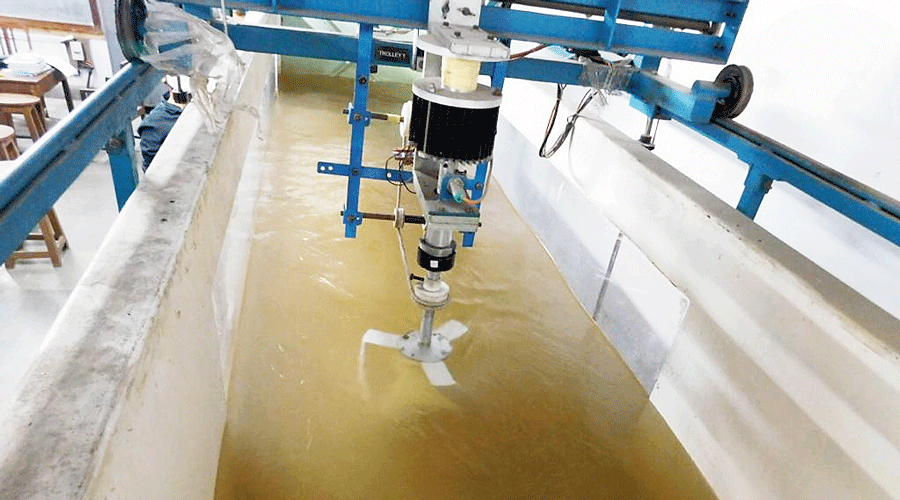Jharkhand-based Indian Institute of Technology (Indian School of Mines) — IIT (ISM) has come up with a solution as overdependence on thermal power is under serious reconsideration in view of limited stock of coal.
The IIT (ISM) located in the coal hub of Dhanbad has developed a portable Hydrokinetic Turbine, which can serve as a source of green energy. Altogether seven such models of Hydrokinetic Turbines have already been developed by the institute out of which the patent application for one has also been filed.
Significantly, as per the April (2022) data, coal stocks at more than 100 thermal power plants in India have fallen below 25 per cent of the required stock (critical mark). In more than 50 thermal plants, the stock has fallen below the 10 percent mark, leading to states seeking additional coal supplies from India’s sole coal producer Coal India Ltd (CIL). Nearly 70 per cent of India’s power demand is met by thermal power plants, which are mostly powered by coal.
The biggest reason for coal shortage is the increasing power demand. In 2021, demand increased to 124.2 Billion Units (BU) per month from 106.6 BU per month in 2019. In 2022, the demand has further increased to 132 BU.
“Hydrokinetic Turbines driven by the flowing water are the cheapest and simplest hydraulic turbines which deliver green energy without any adverse effect on environment. These Hydrokinetic Turbines can be developed using equipment’s like, turbine, housing/frame, bearing, alternator/generator and battery in a short span of two days. The turbines have special significance for a state like Jharkhand where plenty of water resources are available,” said Shibayan Sarkar, associate professor of mechanical engineering department at IIT (ISM) and vice chairperson of Career Development Centre, PG/PhD.
Elaborating about other features of the Hydrokinetic Turbine, Sarkar said, “The Hydrokinetic Turbines are cost effective and a Turbine of 1 KW capacity can be developed at a cost Rs 2 lakh.”
Sarkar further added that the cost increases gradually as per the increase in capacity of turbines.
“Though, a turbine can be developed in a short span of time of two days but its installation may take a few months,” pointed out Sarkar.
“The turbines have been developed in the fluid mechanics and fluid machine laboratory of mechanical engineering department of the Institute as part of a project funded by Science and Engineering Research Board (SERB, a statutory body under department of science and technology),” said Sarkar.
“We have developed the turbine on laboratory scale and will provide the design for the same to the relevant persons/organisations to develop the same through PL/3D print/metal on commercial scale,” said Sarkar.
“As small hydro power are considered one of the future leading contributor of renewable energy and is also quite useful for off grid areas so we aim to spread awareness about Hydrokinetic Turbines among the youth as an alternate source of energy,” added Sarkar.










